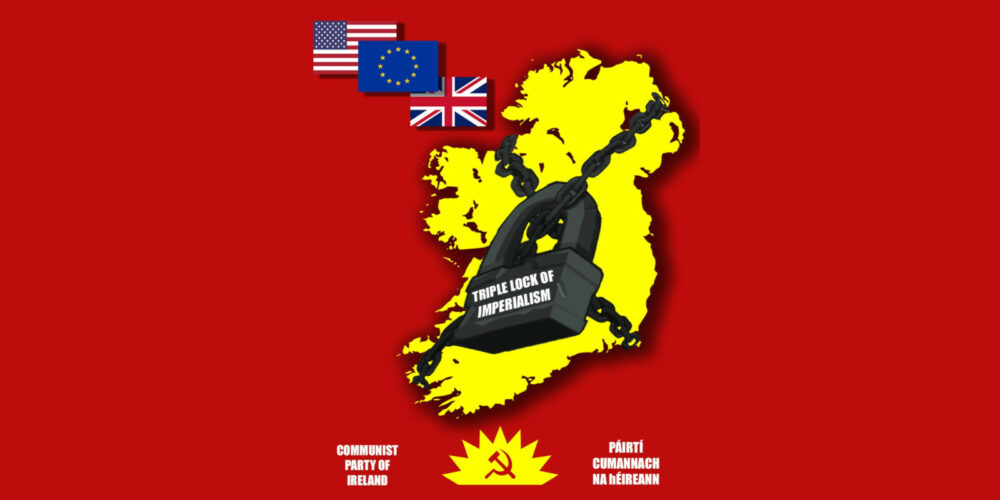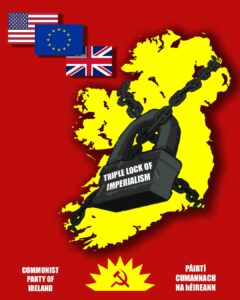After nearly half a century of membership of the EEC and then the EU, Britain finally left on 1 January 2021. The period leading up to its departure was heavily choreographed, with displays of brinkmanship, the stock in trade of the European imperial powers of Britain, France and Germany and the other old imperial states of Europe that make up the core of the EU.
The fact that the particular characteristics of Brexit arose out of an inter-imperialist conflict and were determined by the most right-wing forces in Britain may have significantly influenced the vote, while the Left Brexit campaign, which expressed correct arguments, was sidelined during and after the referendum.
From the beginning of the leave negotiations the British state was confronted by a number of contending interests. A popular majority voted to leave, in the main for reasons to do with sovereignty, while significant sections of big business wanted to retain as much access as possible to the EU single market. In the end Britain got its “special relationship” with the EU that it had identified a number of years ago, and the “Northern Ireland Protocol.”
At present it appears to have abandoned unionism as its strategic partner in the north of Ireland, relegating it as a minor player. But we know from bitter experience that Britain never concedes ground, just changes the terrain of struggle on which progressive forces in Ireland have to challenge them, their old allies now sitting at a side table while old “enemies” are brought to the table to have a look at the menu and see what delights and promises are on offer if they comply with the needs of imperialism.
The British-imposed border in Ireland was used as a pawn in negotiations with the EU to secure its interests, the needs of the Irish people being well down the list of priorities. Those negotiations confirm the life experience of many colonised and dominated peoples and nations: that imperialism has only interests to pursue, and only temporary friends.
Some on the left in Ireland appear to separate anti-imperialism from class, or vice versa. But history has shown that nothing in a class-divided society is above class and, as Marx pointed out, that all previous history is a history of class struggle.
If we apply this materialist view of history, the relationship of the Six Counties with the various imperialist blocs is a class question; but that doesn’t mean either that it should be reduced to an economistic “gas and water” question. That would be a crass and crude reductionist approach to understanding social processes and social forces.
The “Northern Ireland Protocol” agreed between the EU and the British state has now placed the economic border between the two down the middle of the Irish Sea while the political border remains as before. The Six Counties will constitutionally remain within the British state while staying within the EU single market, though Britain is outside it.
This development is a definite weakening of the east–west economic power relations, a weakening of the economic ties between the Six Counties and the British state that has only the potential to grow over time, and the potential to open up the ground for greater all-Ireland economic and social policies, even within conditions of EU control, with at the same time the prospect of Scottish “independence” within an EU context significantly weakening, if not breaking, the United Kingdom.
The people of the Six Counties have little influence or control over economic and social policies, which are determined by the needs and interests of London. The Executive has no fiscal powers or control: all it can do is divvy up the block grant on a sectarian basis, further fostering the division historically established by the British.
A number of questions need to be explored. Has Brexit created greater contradictions for the oldest and most entrenched imperialist power in Ireland, namely Britain? We need to evaluate the situation as regards the shifting balance of forces in Ireland.
- Is the weakening of the most entrenched imperialist force a progressive step?
- Is the strengthening of co-operation on an all-Ireland basis a progressive step forward, even within the straitjacket of the EU?
- Does the evolving situation and the weakening of unionism create better conditions for uniting the working class on an all-Ireland basis, on common goals and strategies?
There is no “silver bullet” for knocking out simultaneously the triple lock of imperialism (Britain, the EU, and the United States). Given the existing balance of forces, if inter-imperialist complication creates better conditions for advancing the interests of the working class, then that is where the left and anti-imperialist forces need to focus: building resistance and promoting qualitative changes that affect the balance of power of class forces in Ireland in a long-term way.
This means the further weakening of east–west (Six Counties and Britain) economic and political relations and strengthening north–south relations with united demands and the struggle of working people on an all-Ireland basis.
The decision by Britain to break with the EU creates contradictions that radical and republican forces should exploit to the fullest. The EU is caught up in many contradictions and internal tensions. There are progressive forces in every country that fundamentally oppose the EU and what it stands for, and they share common goals and can be united against the EU itself.
Only the Irish people have an interest in ending partition and British rule in Ireland, but we may secure solidarity in that struggle from others in Europe and beyond.
One of the great weaknesses of Sinn Féin is its myopic position on the EU and the abandoning of its anti-imperialism, falling into the trap that nothing can be achieved outside the EU and the existing social and economic structures, while others supposedly on the left erect an invisible wall between the struggle for national unity and fulfilling working-class aspirations and the fight for socialism, using phoney language of “working-class interests” to mask their underlying pro-union, pro-imperialist ideology, allowing a veto on progress to reactionary elements within the working class.







